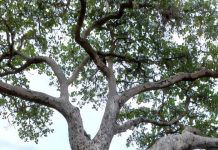
A new study published in Nature Communications by a team led by Prof. Dr. Peter Manning and Dr. Margot Neyret has unveiled the profound impacts of agricultural practices on ecosystems, likening their findings to the classic fable of the hare and the tortoise.
In untouched, nutrient-poor environments, the slow-growing, long-lived ‘tortoises’ of the animal kingdom thrive, conserving resources and reproducing less frequently.
Conversely, in nutrient-rich conditions enhanced by human agricultural activities such as fertilization, mowing, and grazing, the ecosystem shifts in favor of the ‘hares’—species that grow quickly, reproduce abundantly, but live shorter lives.
The study analyzed extensive data from the Biodiversity Exploratories project, covering diverse regions in Germany. The research spanned the entire spectrum of ecosystem inhabitants, from soil microorganisms and plants to birds and bats.
The findings were clear: agricultural management practices accelerate the pace of life across the board, with ‘fast-living’ organisms dominating in managed areas.
This shift not only affects individual species but cascades through the entire ecosystem, altering food chains and ecosystem functions such as decomposition, biomass production, and nutrient cycling.
The implications of this acceleration are significant. While such ecosystems might be more productive in the short term, offering higher yields, they could potentially compromise carbon storage capabilities and lead to greater pollution due to nutrient leaching.
Conversely, more natural, undisturbed ecosystems boast higher biodiversity levels and greater resilience, particularly important as climate change exacerbates extreme weather events.
The researchers emphasize the ease with which human activity can speed up ecosystems but caution against the difficulty in reversing these changes.
The loss of ‘slow’ systems, characterized by their unique organisms and ecological functions, presents a critical challenge in the face of biodiversity loss and climate change.
The study calls for urgent countermeasures to preserve the diversity and integrity of ecosystems worldwide.
The research findings can be found in Nature Communications.
Copyright © 2024 Knowridge Science Report. All rights reserved.



